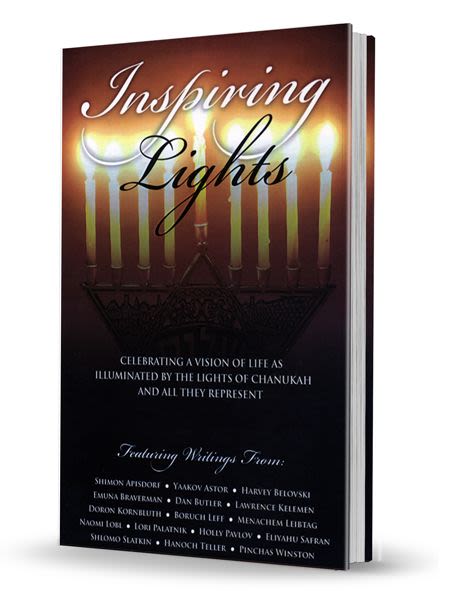
Ski Jumps and Brass Bands
My father’s positive attitude and his belief that everyone could shape their own future if they only worked hard enough, was a great gift that has served me throughout my life.

Strangers No More, Part 3
My childhood home was quite religious. The atmosphere was warm and faith in God was taken for granted. Not only did my parents attend Church every Sunday, but I also recall my father sitting in the rocking chair in the kitchen, close to the stove where the fire was burning, during the early hours of the morning, reading the Bible. We lived in a small village outside the town of Karleby, or Kokkola in Finnish. I was the youngest of four and had two older brothers and one older sister. My grandparents had passed away before I was born. We spoke Swedish at home, the minority language of the Finns on the west coast of Finland, where our town was located, and in the south around the capital, Helsinki. The Finnish capital was far away, and we seldom traveled there. I made my first journey to Helsinki on a school trip when I was in the fifth grade. The 500-km (280 miles) trip was usually made by train since Karleby was on the coastal train line connecting Rovaniemi in the north to Helsinki in the south. Of six million Finns, about five percent speak Swedish as their mother tongue. Both Finnish and Swedish are official languages and the minority language has a guaranteed status by law.
Our home was built in 1949, only a few years before I was born. It was a modest two-story wooden house, painted red like most houses in the country. The boards around the windows were white. The yard was full of birch trees, which were a beautiful, lush green in the summer. When I think of my childhood home, I always envision the summer. In this beautiful garden, I learned to ride my bike, fell and scratched my knees; played football between the trees – we picked two trees and they were the goalposts. I was often a one-man team, since my older brothers were too old to play with me. Sometimes my cousins or classmates came over. To see the winter picture, however, I have to search my memory – it does not come to me as readily. The winter was cold and frosty. The birches were bare. The only colors, besides the white snow, were our red house and the evergreen pine and spruce trees. The smoke rose slowly from the chimney straight towards the sky, signaling the coldness of the Finnish winter. This picture is also, in its own way, beautiful. But winter was not my favorite season.
Our part of Finland was flat as a frozen lake. There was only boring cross-country skiing, no exciting, fast downhill slopes. My cousins and I built a ski-jumping tower from a treetop in the forest behind my house. The tower was only eight meters high, but for the jumpers who had barely turned twelve it was high enough. I remember feeling scared. Here we were, building a ski jumping tower and when it was finished, I was too nervous to use it. Finally I summoned up the courage. Once I got the taste for it, I stayed until dark, or until my toes, ears and nose were numb. Then it was my turn to sit next to the fire and warm up.
I would often attend church on Sundays with my parents. The church was some three kilometers away in the center of Karleby. It was a majestic, old, white-plastered stone building that dated back to the Middle Ages. The impressive walls seemed to me to be two meters thick. What the tower was not in height, it made up for in grandness, with its three large church bells inside, and, of course, the big cross that stood proudly at the top of the tower. This church seated 800 people. It was always full on the big holidays, such as Christmas and Easter, and at midsummer, when the confirmation service of the fifteen-year olds who had attended confirmation class was celebrated.
In my youth, approximately one- to two-hundred churchgoers attended the regular Sunday service. In Karleby, as in all rural areas, over eighty percent of the population belonged to the Lutheran state church. The state average is slightly lower. The parish covering our geographical area of Karleby had 7,000 inhabitants. Serving this community were two full-time ministers and one cantor-organist, youth and social workers and dozens of volunteers workers as Sunday school teachers.
Israel and the Jews were held in high regard in our family, as well as in our community and Church. I cannot recall a single moment when in my home a negative comment was made about the People of the Book. Without a doubt, I owe my early respect for the Jews to the teachings and examples of my God-fearing parents. They believed in the God of Israel and transmitted this faith to my older siblings and to me. Looking back, it was so free of conflict. The “Old Testament” was the sound and solid base, with Abraham, Moses and the Ten Commandments, and as natural as the second floor of a two-story building was the so-called “New Testament.”
I never questioned during that time why the Old and New Testament were regarded in the way they were – these questions only came to me much later. My questions were still far from me when, as a boy, I would ride on the back of my brother’s bike on the way to Sunday school. My oldest brother Borje used to be our Sunday school teacher. I was proud of him because he had a good singing voice and he made the Bible stories come alive. During the years when a teenager begins to contemplate his future, Borje took me along to the brass band recently established in our parish. I also joined the youth choir. In the band I played tenor horn and in the choir I sang bass. These activities in the Church kept me busy during my spare time for many years to come. Later on I felt limited in my social contacts, because in my teen years, I only ever mixed with the same youth group and the same churches – we sang and played in nearly every church and congregational hall throughout the country.
My strong involvement in Church activities during my high school years played an important role in my choice of university and field of study. My Latin teacher, Ms. Gadda, took it for granted that I would go to university to study theology. Sometimes her certainty would annoy me, arising in me the conviction that I would study anything but theology. I tried to think of viable alternatives, but in reality I could never make that leap in contemplating other professions. What about becoming an engineer or a dentist or, as I wanted most of all, a pilot? Airplanes have always fascinated me. Only a few kilometers from our home was a new domestic airport. As a young boy, I could see the old passenger DC-3 come in for landing, morning and evening, en route from Helsinki. Many years later, when the planes had been upgraded to DC-9 jets, I still ran to the window or out to the yard to catch a glimpse of the planes every time I heard their familiar sound.
Maybe those kinds of thoughts were too “high-flying” for the down-to-earth family that we were. We had a small farm with fields in front of the house and forests behind. In the barn there were cows and calves and one horse. Milking cows was closer to my reality than taking a seat in an airplane cockpit. Still, I have to admit that I was encouraged to study, especially by my father. In his opinion, anything was possible as long as I pursued an academic future. My father’s positive attitude to life, and his belief that everyone could shape their own future if they only worked hard enough, was a great gift that has served me throughout my life. He himself regretted the fact that he did not continue his education, go to university, or follow another career besides farming.
To be continued.
(Strangers No More, by Shlomo Brunell. Reprinted with courtesy of Gefen Publishing House 2005 www.gefenpublishing.com)














Tell us what you think!
Thank you for your comment!
It will be published after approval by the Editor.